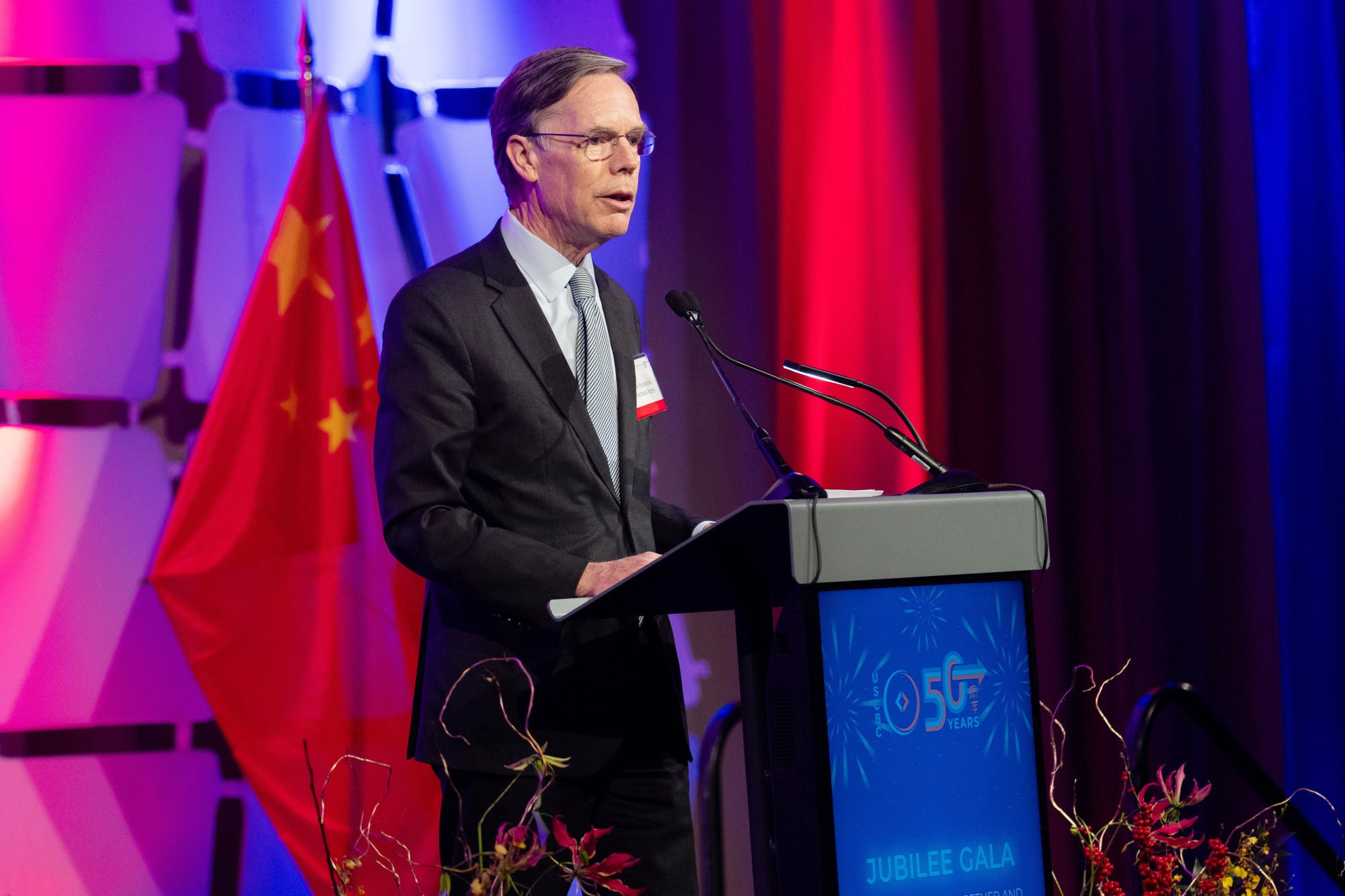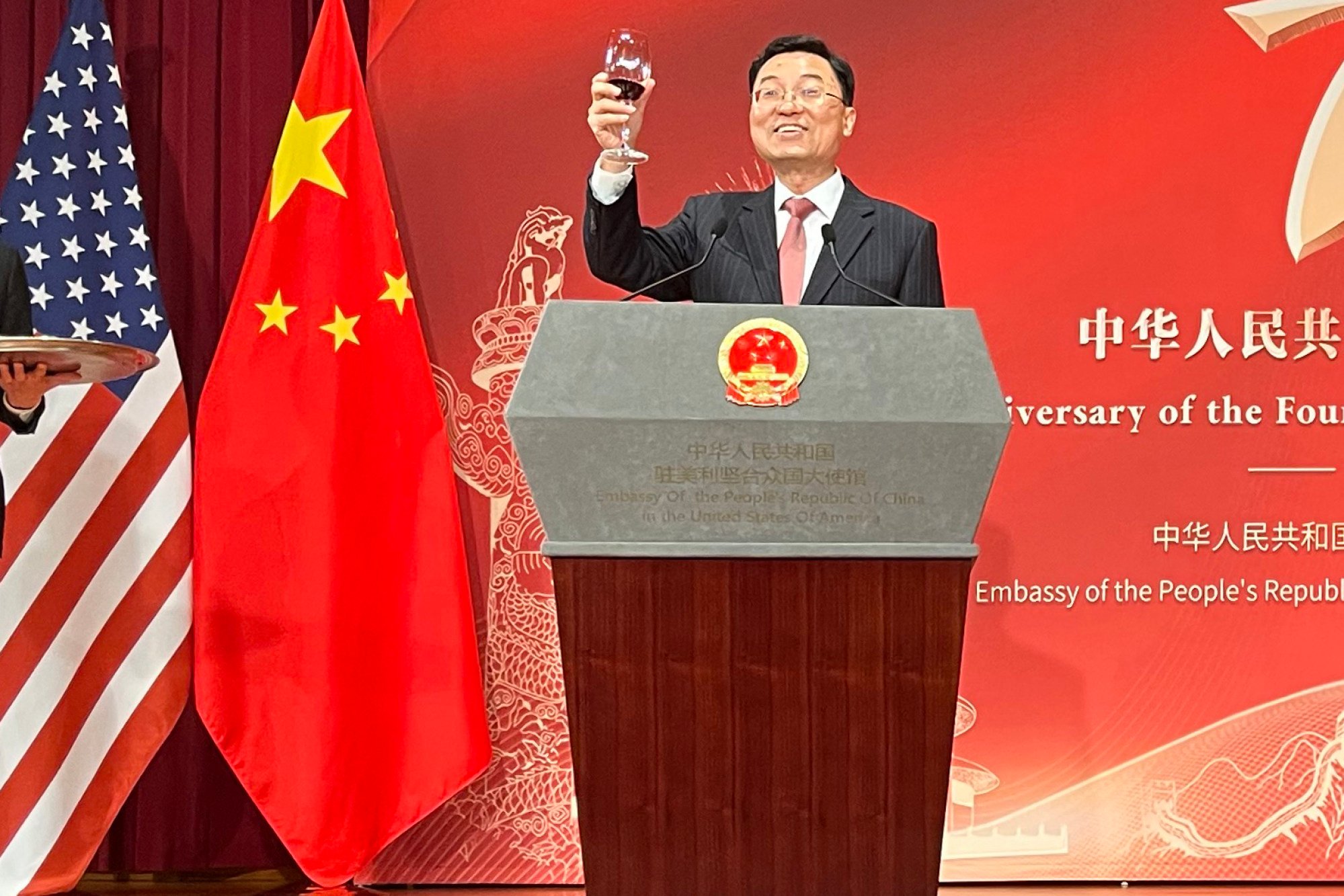
Washington’s ambassador to Beijing, Nicholas Burns, addressed an audience at the Carter Centre in Atlanta via video, praising the Chinese government for “concrete action” to block the flow of fentanyl precursors from the US and restarting military-to-military dialogue while underscoring Washington’s hard line on sales of advanced technology to China.
“We’ve seen action, real action, concrete action by the government in Beijing to begin to shut off the flow of precursor chemicals, to take action against those Chinese companies that were involved,” he said, before turning to the need for technology export restrictions.
“We simply are not going to allow the People’s Liberation Army to acquire our most sensitive technology so that it can compete with us militarily, and there’ll be no compromise on those advanced semiconductors, and other technology restrictions that we’ve put into place,” he added.

Speaking to the Carter Centre audience in a pre-recorded video address, China’s Ambassador Xie Feng seemed to cite these restrictions as an impediment to better relations.
China to persist with AI development in 2024 despite US chip curbs: UBS
China to persist with AI development in 2024 despite US chip curbs: UBS
Xie suggested that Washington’s characterisation of China as a “competitor” – a term used by the US State Department to describe some areas in which the two sides engage – as akin to “containment”.
“If one sees the other side as a primary competitor, a ‘pacing threat’ and a target for containment, improving and stabilising bilateral relationship would be out of the question,” he said.
The White House and top Pentagon officials have described China as a “pacing threat”, and Biden told Chinese President Xi Jinping during their summit in November that the two countries “are in competition”.

“The US should abide by the one-China principle and the three Sino-US joint communiques with concrete actions, [and] earnestly deliver on the statements by American leaders that the United States does not support Taiwan independence,” Xie said.
Burns called Beijing’s reaction to Pelosi’s visit “excessive” and did not reiterate the oft-stated position that Washington does not support Taiwanese independence.
Most countries, including the US, do not recognise Taiwan as an independent state, but Washington is opposed to any attempt to take the island by force and is committed to supporting its defence capability.
Despite their crosswise comments on Taiwan and tech restrictions, the two envoys appeared upbeat on some fronts in addition to fentanyl and resumption of high-level miliary-to-military dialogue.
They expressed optimism on joint efforts to control the use of artificial intelligence, which Biden and Chinese President Xi Jinping agreed to during their summit, and hinted that this effort would be aimed at the dangers of incorporating the technology in autonomous weapons.
Bilateral talks on artificial intelligence would be aimed at “enhancing global AI governance and jointly managing risks and challenges brought by the technology so that the ‘Terminator’ scenario, where machines wage war against humans, will not become a reality” Xie said.
However, on that note, Burns suggested that the two sides are still working out who would need to be involved in the talks.
“We have to decide who should be at the table,” he said. “In the case of the United States, I would say obviously, representatives of our government, but also of our private sector, where much of the expertise in artificial intelligence resides.”
EMEA Tribune is not involved in this news article, it is taken from our partners and or from the News Agencies. Copyright and Credit go to the News Agencies, email [email protected] Follow our WhatsApp verified Channel










